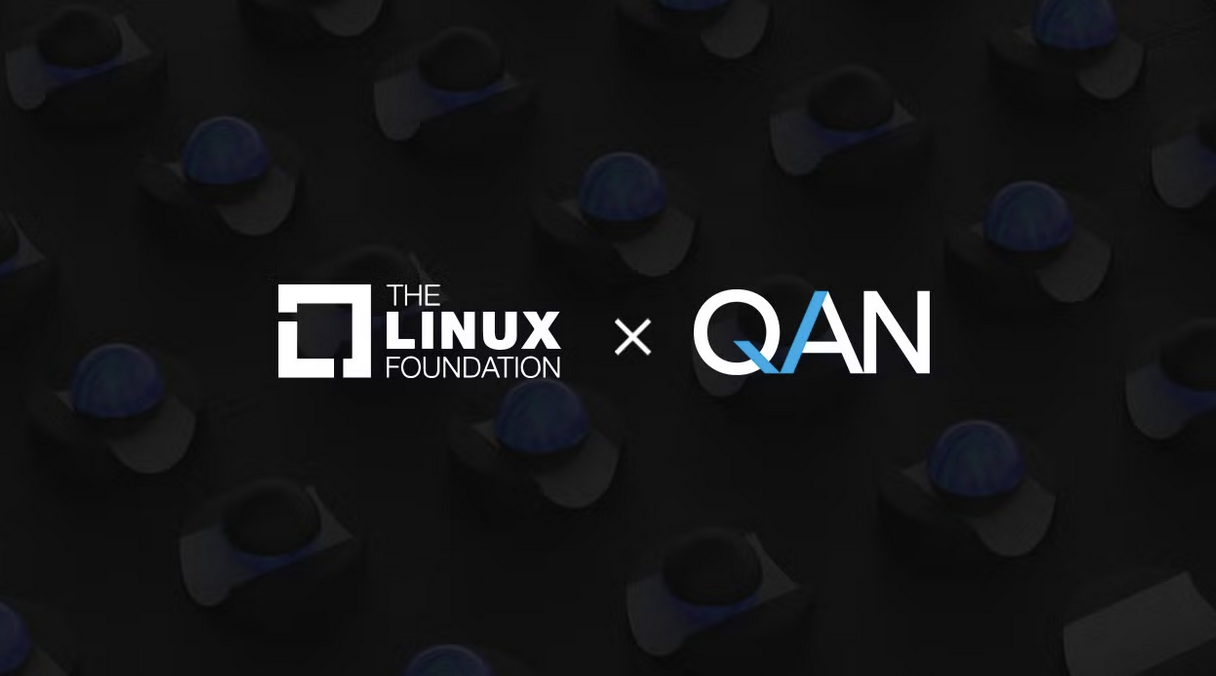QANplatform Joins Linux Foundation and its Post-Quantum Cryptography Alliance

Insider Brief
- QANplatform has become a member of the Linux Foundation and its Post-Quantum Cryptography Alliance (PQCA), collaborating with tech giants like IBM, Google and Meta to develop quantum-resistant security solutions.
- The membership reflects QANplatform’s dedication to advancing cryptographic standards that align with the newly finalized post-quantum cryptographic framework set by NIST.
- QANplatform offers a flexible development environment with its custom virtual machine compatible with multiple programming languages, aiming to accelerate Web3 adoption while providing robust quantum-resistant security for governments and enterprises.
PRESS RELEASE — QANplatform – the quantum-resistant blockchain platform – is proud to announce its membership in the Linux Foundation and its participation in the Linux Foundation’s Post-Quantum Cryptography Alliance (PQCA) project, a group of technology leaders collaborating to safeguard digital infrastructures against quantum-era threats.
QANplatform joins a distinguished group of prominent PQCA members, including IBM, Google, Meta, and Nvidia among others, as one of the first 20 members.
This move signifies QANplatform’s commitment to the development of next-generation cryptographic solutions and aligns its efforts with the global push for robust, post-quantum security standards.
This announcement comes at a pivotal moment, as the National Institute of Standards and Technology (NIST) finalized its post-quantum cryptographic standards, in August 2024 which serve as a framework for securing sensitive information in a quantum future. These standards are a critical milestone, providing the necessary foundation for companies to start transitioning to quantum-resistant cryptographic solutions.
The Linux Foundation is a nonprofit organization dedicated to fostering innovation through open-source technologies. It hosts some of the most impactful technology projects globally (e.g.: Linux, Kubernetes, Node.js.), supporting the development of secure, scalable, and reliable software. The Foundation’s community consists of leading enterprises and developers who work collaboratively to advance open-source solutions for various sectors, including cloud computing, blockchain, and cybersecurity.
One of the Foundation’s key initiatives, the Post-Quantum Cryptography Alliance (PQCA), focuses on creating cryptographic algorithms resilient to the threats posed by quantum computing. As quantum computers become more advanced, they will be capable of breaking current encryption methods, posing significant risks to industries and governments alike. The PQCA aims to develop and promote cryptographic standards that can withstand these future threats.
QANplatform is a blockchain platform that provides unparalleled time to market for Web3 development. It serves SMEs, enterprises, and large governments, infrastructure projects with quantum-resistant security. In March 2024, the first EU country adopted QAN’s quantum-resistant technology.
QANplatform aligns with the Linux Foundation in several ways. Firstly, QANplatform has an in-depth knowledge in quantum-resistant blockchain security proven by the fact that it not only identified but also implemented the post-quantum algorithm (CRYSTALS-Dilithium) in its blockchain platform well before NIST selected it.
Secondly, QANplatform has developed a custom virtual machine (VM) that allows developers to write smart contracts in any of the programming languages, including JavaScript, Python, TypeScript, Java, and more, as long as its Linux kernel compatible. With this, QANplatform aims to lower entry barriers and enhance adoption, offering flexibility and accessibility to a broader community of developers.
Co-Founder and CTO of QANplatform, Johann Polecsak, commented on the significance of the membership: “Becoming a member of the Linux Foundation and its Post-Quantum Cryptography Alliance is a major step for QANplatform. As quantum computing rapidly advances, the potential threats to current cryptographic systems become increasingly concerning. We are committed to working with other leaders in the field to ensure that the global community is protected from these emerging risks.”
Hart Montgomery, CTO of the Post-Quantum Cryptography Alliance of the Linux Foundation, commented: “We are thrilled to welcome QANplatform to the PQCA. Their expertise and commitment to innovation make them a valuable partner in the fight against quantum threats. As we continue to develop and implement post-quantum solutions, collaborations like this are essential to ensuring the security of future digital ecosystems.”
